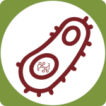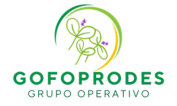ECOINSECT Operational Group
- Type Operational group
- Status In progress
- Execution 2022 -2024
- Assigned Budget 299.998,88 €
- Scope Autonómico
- Autonomous community Andalucía
- Main source of financing CAP 2023-2027
- Project website GO Ecoinsect
Waste from the agri-food industry constitutes one of the main waste problems in much of the world. The amount of waste and byproducts generated in warehouses for packaging and marketing fresh fruits and vegetables is considerable, reaching 3.5% of annual production. This poses not only an economic and management problem for companies in the sector, but also the treatment of byproducts as waste without a more suitable alternative outlet leads to serious harmful environmental effects (increased greenhouse gas emissions, climate change, etc.).
For this reason, the agri-food industry, in pursuit of sustainable development, is increasingly implementing measures to utilize and valorize the byproducts generated (from their use in agricultural inputs and animal feed to their valorization to obtain natural extracts rich in bioactive compounds), thereby reducing the volume of final waste that needs to be treated by other means and reducing the carbon footprint of the process. Furthermore, this utilization creates new sources of wealth that provide greater economic profitability to the initial industrial process and enable more competitive production costs.
- Bibliographic review.
- Selection, collection, conditioning and characterization of different plant waste and by-products.
- Growth of Tenebrio molitor and collection of raw materials for flours and organic fertilizers.
- Production and characterization of highly protein-rich functional flours from Tenebrio molitor larvae.
- Production and characterization of eco-sustainable fertilizers with nutritional and/or bioactive properties from Tenebrio molitor excrement.
- Field study of the effectiveness of eco-sustainable fertilizers obtained from Tenebrio molitor excrement in selected organic crops.
- Data integration and incorporation of ICTs.
- Submission of reports and documentation for technical and economic justification. Dissemination of project objectives and results.
Develop a Circular Economy System in the agri-food sector from a comprehensive approach based on "obtaining functional protein flours and eco-sustainable fertilizers from insects grown on different horticultural by-products, characterizing new products for their application as feed/food ingredients or in organic farming and agroecology, and optimizing processes with the help of ICTs to obtain products with the desired characteristics, reduce environmental impact and improve productivity and efficiency in the use of natural and energy resources in the agri-food industry.
- Coordinator/entity name: FUNCTIONAL FOOD RESEARCH AND DEVELOPMENT CENTER FOUNDATION (CIDAF)
- Postal address: Avenida del Conocimiento 37, 18100 Granada
- Coordinator/entity email: avigil@cidaf.es
- Telephone: 958637206
- FUNDACIÓN CENTRO DE INVESTIGACIÓN Y DESARROLLO DEL ALIMENTO FUNCIONAL (CIDAF)
- FUNDACIÓN CENTRO DE INVESTIGACIÓN Y DESARROLLO DEL ALIMENTO FUNCIONAL (CIDAF)





